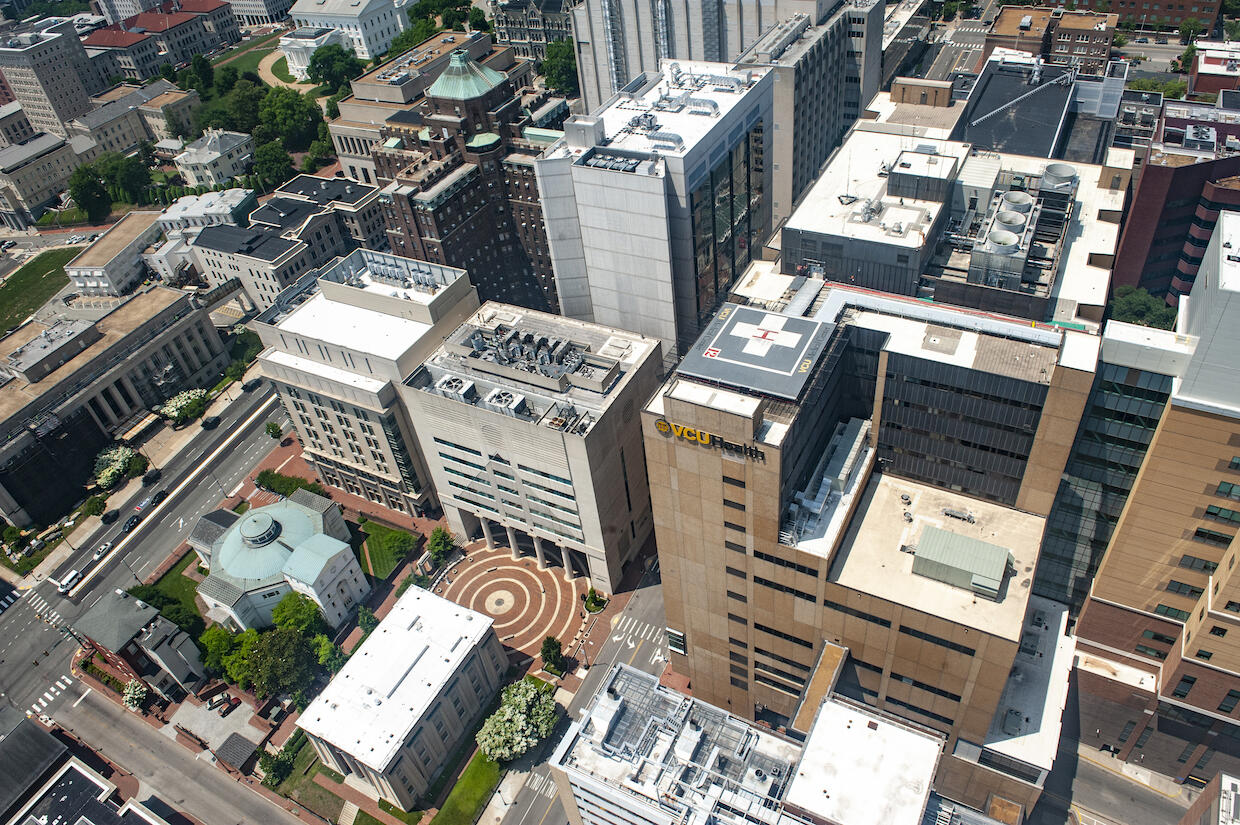
July 2, 2021
18 receive project funding from VCU’s Presidential Research Quest Fund
Share this story
Eighteen Virginia Commonwealth University researchers have won support from the Presidential Research Quest Fund this year.
Their work seeks to enhance the human experience by responding to societal challenges such as the changing workforce, addiction and sustainable sources of energy. A total of $512,000 will fund research efforts on both the Monroe Park and MCV campuses, including in business, the sciences, public affairs, education, the health sciences, social work, engineering, pharmacy and VCU Libraries.
“The 2021 Quest fund recipients represent a diversity of disciplines. Although vastly different, each research project has the common goal of improving the human condition,” said VCU President Michael Rao, Ph.D. “I am pleased that the university continues to fund the program and I look forward to seeing how these projects will translate beyond the university.”
Since the fund was founded in 2014, it has supported more than 100 projects, with recipients making more than 241 presentations and publishing more than 200 peer-reviewed papers. At least five patents have been filed from past research projects. According to the most recent data, the financial return on VCU’s $4.5 million Presidential Research Quest Fund investment has garnered over $25.3 million in state, federal, private and industry funding in the academic years 2016-21.
To qualify for the program, faculty members’ research must align with VCU's Quest 2025: Together We Transform and the initiatives of the newly launched One VCU Strategic Research Priorities Plan.
"I am so pleased with the exceptional potential of the research projects the [Office of the Vice President for Research and Innovation] awarded through the 2021 Presidential Quest Fund," said Srirama Rao, Ph.D., vice president for research and innovation. "The research that comes out of this program is often groundbreaking, and this time around we have aligned the process with the aims of our strategic research priorities plan. Through this coordinated effort, VCU can continue to expand its reach and amplify its impact as a premier, urban, research university."
The six-year research priorities plan seeks to engage the VCU community by creating a culture of collaboration and inspiring researchers to improve and enhance the human condition.
Seven of the projects funded by the Presidential Research Quest Fund aim to enrich the human experience, one of the four initiatives of the Strategic Research Priorities Plan. Economist Adam Blandin, Ph.D., an assistant professor in the School of Business who has studied the labor force during the pandemic, won support for a related project, “Remote Work, Geographic Mobility, and the Long-Run Economic Impact of COVID-19.”
With the need for social distancing due to the pandemic, there has been a significant increase in employees working remotely. This increase could continue post-pandemic, making these working conditions permanent and employees more mobile. Blandin’s work will focus on the migration from busy cities, where employees lived because of proximity to their jobs, to areas where they can be closer to their families or other amenities, no longer tied to a certain location for work.
The new survey will collect information on commute time and related expenses, productivity working from home and from the work site, and how geographic mobility affects employees' decisions on where to live.
Blandin’s work also examines sustainable ecosystems, another initiative of the Strategic Research Priorities Plan. Three other Presidential Research Quest Fund projects work to support sustainable ecosystems, including one from chemist Indika Arachchige, Ph.D., on “Bimetallic Transition Metal Phosphide Nanostructures as High-Efficiency, Earth Abundant Catalysts for Electrochemical Water Splitting.”
With electrochemical water splitting, Arachchige, an assistant professor in the Department of Chemistry in the College of Humanities and Sciences, seeks to split water molecules into hydrogen and oxygen to produce economical and environmentally friendly fuel. This water-splitting process produces clean hydrogen gas that could be used to fuel cars and other motorized vehicles. When this clean hydrogen gas is burned, the only combustion byproduct emitted is water, compared to the harmful carbon dioxide gasses emitted from petroleum fuels.
Other projects relate to optimizing health, including two that focus on addiction: one on opioids and the other on cocaine. Phillip Gerk, Ph.D., a professor and vice chair in the School of Pharmacy, is working to develop methods to make it possible to treat opioid addiction with buprenorphine that is swallowed. Buprenorphine currently is administered by injection, under the tongue and on the cheek, as an implant, or as a skin patch. Because of the way the medication is administered, patients often abandon opioid treatment therapy after only one month. By providing patients with the convenience of oral medication, this could encourage them to continue treatment.
Sammanda Ramamoorthy, Ph.D., a professor in the Department of Pharmacology and Toxicology, meanwhile, is pursuing “Novel Therapeutic Targets for Developing Effective Pharmacotherapeutics to Treat Cocaine Addiction.” Similar to the lack of oral buprenorphine, there is no current effective medication available for cocaine use disorder. Ramamoorthy plans to study addiction on the cellular and neurochemical level.
Four Presidential Research Quest Fund projects undertake the priority of achieving a just and equitable society. One is from Hayley Cleary, Ph.D., an associate professor in the L. Douglas Wilder School of Government and Public Affairs. Cleary will leverage virtual reality technology to better understand the youth interrogation process and address common practices by police. The VR technology will safely allow adolescents to “experience” police questioning scenarios, providing Cleary the opportunity to study the adolescents' reactions and experiences.
Subscribe to VCU News
Subscribe to VCU News at newsletter.vcu.edu and receive a selection of stories, videos, photos, news clips and event listings in your inbox.







